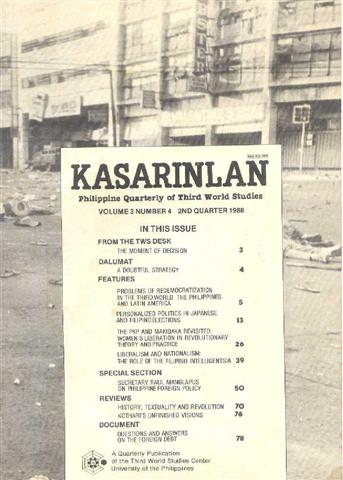Liberalism and Nationalism: The Role of the Filipino Intelligentsia
Abstract
This essay shall take a critical look at Philippine colonial history and will focus on the intellectual class as an elite group commanding social, economic, and political resources. By utilizing these, intellectuals as a group, were able to forge a Philippine society according to their conceptions, views, and beliefs of what such a society "ought" to be. Nation-building, tied to resource-access, combine what Shils refers to as the inevitable "vocation" of the intellectuals. Another central idea in this paper is that of Filipino nationalism and the role of Philippine intellectuals as nationalists. Because of the inherent and fundamental contradictions plaguing the lives of Filipino intellectuals - as initiators of protests against foreign dominance and as agitators for national independence, yet being products of the intellectual and cultural traditions and institutions of their foreign aggressors - throughout the modern history of their country they have often exhibited ambivalent, schizophrenic, and , rather confused understanding of nationalism. From protest, agitation, and pressure to cooperation, accommodation, and compromise, Filipino nationalist-intellectuals have articulated their beliefs, values, and conceptions about Filipino society which are consistent with the underlying European ideals of liberalism. Hence, the history of nationalist struggles in the modern period reveal intellectual sponsorship from the West. This paper discusses a historical perspective of the Filipino intelligentsia and Philippine nationalism.
Published
2007-12-04
Issue
Section
Features
By submitting a manuscript, the authors agree that the exclusive rights to reproduce and distribute the article have been given to the Third World Studies Center.



